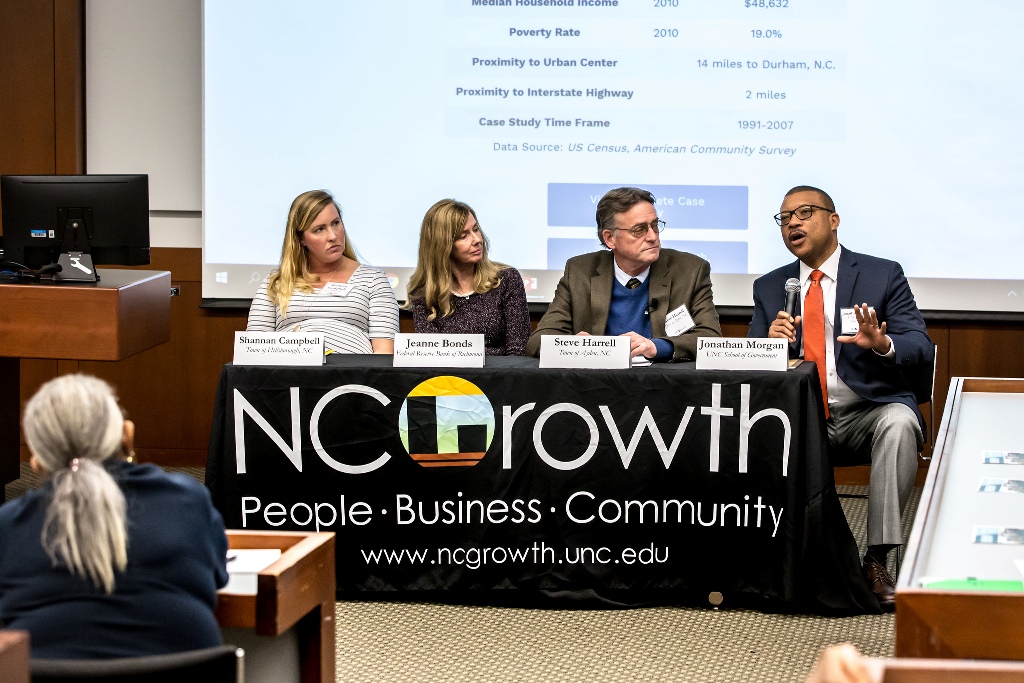Success Story: University of North Carolina Home Grown Tools Give Local Leaders Across the Nation Access to Development Strategies Used by Peers

Say you are an economic developer or local leader and you want to develop a way to revitalize your downtown. Where do you go? Local practitioners in this position would generally rely on their past experiences or personal connections to get examples of activities that may be appropriate. And while these practices may yield insightful information, constraining future possible action based on the bounds of an individual’s experience or LinkedIn Profile is usually not the most prudent way to facilitate robust economic development.
Enter Kenan Center for Private Enterprise at the University of North Carolina at Chapel Hill. As an EDA-funded University Center (PDF), the organization saw through work with communities the need for accessible, compelling, and detailed information that local leaders could use to help them shape local economic development projects. While the need was present, there did not seem to be an easy answer.
To solve this problem, the University Center leveraged the expertise of a variety of departments, divisions, and affiliated economic development groups to assess ways that this gap could be filled. The outcome was a tool that provides specific examples of how different communities are employing the 18 most common strategic approaches to advancing economic development.
Home Grown Tools is designed as a “living” repository that practitioners can easily utilize to get inspiration from similar areas, find case studies, and learn more about specific strategies for growth.
At present time, the tool includes 44 case studies from across the nation (18 states are currently represented), but the Kenan Center is seeking input for additional case studies that they can examine and include.
“We built the Home Grown Tools platform to give local leaders across North Carolina and the U.S. access to the strategies used by their peers to increase community wealth and economic development,” said Mark Little, Executive Director for Kenan Institute of Private Enterprise and Director of NCGrowth. “The news is full of failures and hyped-up projects that are unrealistic for communities with few economic resources—we wanted to show that there are other, practical and exciting ways to prosperity.”

The goal of building capacity and providing robust analysis to inform economic development activities is at the heart of the Kenan Institute’s portfolio of University Center work in North Carolina. The Kenan Center leverages the diverse and experienced master’s level students in multiple departments across campus and connects them with communities or firms to tackle a specific economic development project. In this way, the Kenan Center has helped provide critical resources for a number of projects, including an economic development strategy for the city of Goldsboro and analysis to support business growth of Best Diamond Packaging, Bakers’ Southern Traditions Peanuts and Raised in a Barn Farm, among many others.
Community and business leaders who work with Kenan Center offer effusive praise. The owner of Raised in a Barn Farm summed up their experience by noting that the Kenan Center “helped to focus and gain connections that will no doubt lead to many important decisions as we grow our business...it is my hope that by continued association with NC Growth, we will grow to become a very valuable service to our local community, both for recreational purposes and providing local fresh foods from our farm and others.” The Director of Economic Development for Bertie County summarized his experience with Kenan by saying, “You have no idea how much your help is appreciated. Bertie County can never thank you enough."
To submit an idea for a community that should be featured on the Homegrown Tools resource, please email ncgrowth@unc.edu. To learn more, there is a webinar about Homegrown Tools scheduled for April 25. Sign up here!
The EDA University Center program is designed to leverage the assets of universities to advance regional economic development efforts. To learn more, please go to www.eda.gov.








